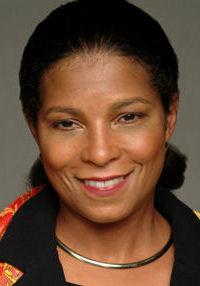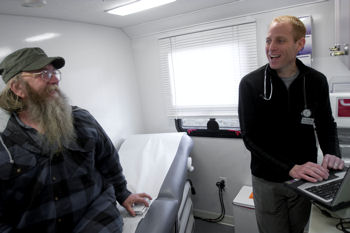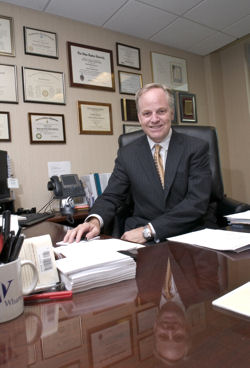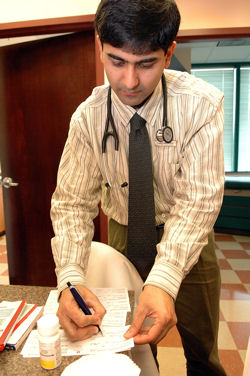A woman in medicine reflects on philanthropic leadership
Risa J. Lavizzo-Mourey, MACP.
Risa J. Lavizzo-Mourey, MACP
Occupation: President and CEO, Robert Wood Johnson Foundation

Age: 53
Current residence: Princeton, N.J.
Hometown: Seattle
Family: Married for 32 years with two adult children
Education: MD from Harvard Medical School, MBA from the Wharton School of the University of Pennsylvania
Residency: Brigham & Women's Hospital
Specialties: Internal medicine and geriatrics
Something I wish I'd learned in medical school: When I was in med school, I became intrigued with the influence that Washington and policy were having on the care that doctors provided in the day-to-day treatment of patients. One of the things that I would have wanted to learn was more about policy. This is why I chose to pursue an MBA with a focus in health policy.
I became an internist because: That was very easy. Internists are the ones who are willing to embrace all of health care—the complex medical problems. They also embrace the ills of the health care system. It was the intellectual challenge of doing that, and also the intellectual challenge of discovering new ways of helping people live healthier lives. As I looked at it, being an internist was the only specialty that allowed you to do all of those things.
First job: Research assistant at Providence Hospital in Seattle when I was in high school
Most rewarding aspect of your job: Even though I'm always going to be a woman of medicine, one of the things that I love most about my job is that I have the ability to think about how to transform America's health care system. Philanthropy is one of those unique positions in American society where we can fill the gaps that government and the private sector leave.
Most meaningful professional accomplishment: At the Robert Wood Johnson Foundation, we've worked with dozens of like-minded institutions that have helped revitalize professionals' and the public's view about the importance of providing health insurance to everyone in this country. For years, no one wanted to even talk about the uninsured, but now it's at the top of the policy agenda and we're very proud of that.
Future goals: My goal is to improve health care for all Americans. In order to improve the quality of care, we've got to get physicians to realize that it is their utmost responsibility to constantly improve the quality they provide. We have to try to get physicians to understand that they have to communicate honestly with the public about how we're doing and that means measuring and reporting our performance publicly.
Thoughts on women in medicine: Medicine as a profession really needs women because ensuring the health of people all around the world is one of the hardest things we do, but it is fundamental. There's no way we can achieve that unless we draw on the brightest, most compassionate, committed and tenacious people irrespective of their gender, race, ethnicity or anything else.
Personal heroes: My mother was a pediatrician and she inspired me to not only be a doctor but to work hard to improve health care for people who are marginalized in society.
Pet peeves: People who would rather complain than work on fixing a problem.
Favorite ways to spend free time: I like to photograph flowers and birds.
Favorite author or poet: Alice Walker
Books on my night stand: Better: A Surgeon's Notes on Performance by Atul Gawande, MD. The other one is an older book. It's called Patients, the Experience of Illness, by a physician named Mark L. Rosenberg, MD.
Most surprising thing about me: Whenever I can, I ride my bike to work.
Biggest regret: I regret that when I was in college, I didn't study more literature, history and art.
If I weren't a physician, I would be: A social entrepreneur.





